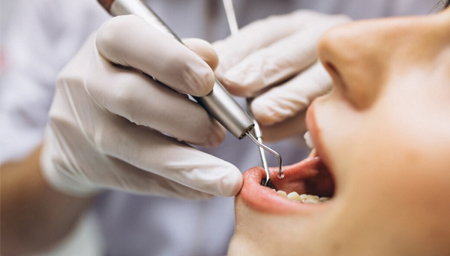Protect Your Smile Before Problems Begin
Why Preventive Dentistry Is Your Best Investment in Oral Health
Life can be rough on any part of the body — but when it’s rough on your teeth, it’s pure misery! If you often deal with toothaches or sensitivity, it might be time to take a dental check-up. Preventive dentistry focuses on minor problems before they become complex or costly. It helps detect cavities and gum disease early, saving time and need for any major treatments. At Precision Dental & Implant Centre, we believe that prevention is the foundation of lifelong oral health.
Our dental clinic in Kolkata provides a complete range of Preventive Dentistry treatments for people of all ages. We help you keep a healthy smile with simple, effective steps.
Comprehensive Preventive Care — What We Offer
PREVENTIVE DENTISTRY
Dental Hygiene
Thorough dental check-ups to spot early signs of decay or gum issues.
As part of preventive dentistry in Kolkata, dental hygiene is the best practice for maintaining clean and healthy teeth. It focuses on removing plaque and debris while ensuring gums stay pink, pain-free, and do not bleed when brushing or flossing.
Our expert dentists in Kolkata perform thorough cleaning using advanced ultrasonic scaling technology to remove buildup from hard-to-reach areas.
We also guide you on effective brushing and flossing techniques to maintain optimal oral hygiene at home. With routine dental checkups, X-rays, and professional cleanings, you can keep your teeth strong, gums healthy, and your smile fresh.

PREVENTIVE DENTISTRY
Dental Hygiene
Dental hygiene is the term for maintaining teeth in a clean, healthy state. It is a component of upholding proper oral hygiene, keeping teeth free of plaque and debris, and ensuring pink, pain-free gums that are healthy and do not bleed when one brushes or flosses.
Everyone should practice good dental hygiene, which can be handled by engaging in a few easy daily habits and visiting the dentist frequently for routine checkups, dental X-rays and cleanings.
Treatment Procedure:
Done by scaling from the machine by our specialist.


Treatment Options
- Scaling & polishing — Professional teeth cleaning in Kolkata for plaque removal and fresher breath.
- Fluoride treatment — For strengthening enamel and lowering cavity risk.
PREVENTIVE DENTISTRY
Pit & fissure sealants
Pit & fissure sealants — protect deep grooves in molars from decay.
Pit and fissure sealant is a thin, protective coating that is applied to the chewing surfaces of the back teeth (molars and premolars) to help prevent tooth decay. These teeth have grooves and pits (fissures) that can be difficult to clean with a toothbrush, making them more susceptible to cavities.
Before applying the sealant, your tooth is cleaned and dried, and an acidic solution is applied for better adhesion. The sealant is then applied in liquid form to flow into the grooves and hardened with a curing light, creating a smooth surface that’s easy to clean.
Sealants are highly recommended for children and teenagers once their permanent molars appear. However, adults can also benefit from sealants, especially if they are at high risk for tooth decay.


PREVENTIVE DENTISTRY
Enameloplasty
Enameloplasty — minor reshaping to reduce food traps and sensitivity.
Enameloplasty, also known as tooth reshaping, is a quick and conservative dental procedure that enhances the appearance and function of your teeth. During the procedure, small pieces of tooth enamel are removed to alter the size, shape, length, or surface of a tooth.
This cosmetic dental treatment smooths uneven edges, corrects minor imperfections, and can even help prevent plaque buildup on overlapping teeth. The result is a more even, confident, and natural-looking smile.
PREVENTIVE DENTISTRY
Sensitive Teeth
Sensitive Teeth– Protect Your Smile from Painful Triggers
Tooth sensitivity often causes sharp discomfort when teeth are exposed to hot, cold, sweet, or sour triggers. It often occurs when enamel wears down or gums recede, exposing the underlying dentin.
Why See a dentist in Kolkata—
– Our Preventive Dentistry specialists in Kolkata diagnose the root cause of sensitivity prior to treatment.
– Recommend personalized treatments — from fluoride applications and desensitizing agents to lifestyle guidance.
– Performs clubbed procedures to prevent teeth from decay.
With Preventive Dentistry in Kolkata, you can address such issues early, protect nerve endings, and reduce the chances of experiencing sudden, severe dental pain.


PREVENTIVE DENTISTRY
Oral Cancer Screening
Oral cancer screening — routine checks for early signs and timely referrals.
Oral cancer screening is a procedure that is used to detect early signs of oral cancer or pre-cancerous conditions in the mouth. It helps to identify any abnormalities or lesions in the mouth that may be cancerous or pre-cancerous so that early intervention and treatment can be initiated.
Oral cancer screening in Kolkata is performed by our doctors during a routine dental check-up. Our dentists carefully examine your tongue, gums, cheeks, and throat for any unusual lesions, discolouration, or tissue changes, which may not be visible to the naked eye.
Risk factors for oral cancer include:
- tobacco use
- excessive alcohol consumption
- a history of oral cancer or pre-cancerous lesions
- exposure to the human papillomavirus (HPV).
Preventive care not only protects your smile but also reduces the need for complex treatments such as implants or restorations. Regular cleanings and dental checkups improve your oral health, boost confidence, and contribute to your overall well-being.
PREVENTIVE DENTISTRY
Why Choose Precision Dental for Preventive Dentistry in Kolkata
- Experienced dental professionals specializing in preventive and family care
- Modern equipment for accurate diagnosis and gentle cleaning
- Personalized treatment plans for every age group
- Strict hygiene and sterilization standards
Our approach is designed to minimize discomfort and keep your dental visits stress-free. We aim to protect your teeth and gums while keeping your natural smile intact. Our experts also prioritize patient education— henceforth, guiding you with easy home care for tooth sensitivity and better oral hygiene.
You can reduce your dental anxiety and improve long-term results with us.
PREVENTIVE DENTISTRY
When Was Your Last Visit?
It’s always best to treat small dental problems than let it get worse. Schedule your routine dental checkup at Precision Dental & Implant Centre today and take a proactive step toward good oral health.
Waste no time when it comes to your dental health.
Get in touch with us for an Expert Dental Consultation!

